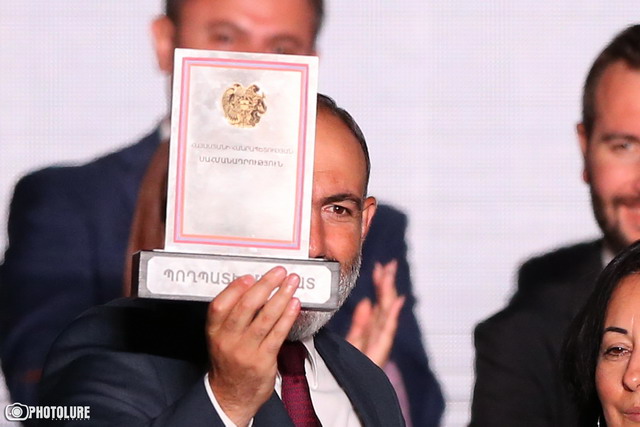Over the past few days, our border in the Syunik and Gegharkunik provinces and Yeraskh has been tense. The enemy frequently resorts to provocations which, in any case, are not receiving the appropriate response on a political and diplomatic level. This is the case where foreign policy, as usual, is connected to domestic policy. There is no panic in society connected to that, and the government, since no one had demands, is “relaxed,” and it doesn’t consider it necessary to take any serious steps.
Instead, we rejoice in “European generosity.” That, of course, is a positive thing. But first, 2.6 billion euros, no matter how surprising it sounds, is not a fantastic amount. The EU gave 7-8 times more to Saakashvili, who lost his territories, but in the end it did not help either Saakashvili or Georgia in particular. Second, it is the responsibility of our government to develop the programs in detail. If no serious work is done, no one will give us that money. And third, is the right balance of relations with the EU and Russia calculated? Can people still working at the Foreign Ministry influence policy-making?
Why did Vagharshak Harutyunyan resign, who, despite all his shortcomings, had certain connections within the high-ranking Russian military? Is Armen Grigoryan a successful candidate for Foreign Minister in that context? It seems to me that there is every reason to claim that after suffering a heavy defeat in the war, our state and, first of all, the army and diplomacy have not restored themselves, and this is largely due to the quality of the current government. The so-called Dunning-Kruger effect is at work here. According to American sociologists, the higher the level of incompetence, the greater the confidence in one’s own infallibility.
But, I repeat, the quality of power is directly conditioned by the “people” who formed that government with the absolute majority of citizens participating in the elections, with more than 600 thousand people. Therefore, not only Pashinyan is responsible for the events taking place and will take place in Armenia, but also each of those 600 thousand people personally. The government works in accordance with the mandate given to it. During the election campaign, the Civil Contract promised to hit all the “bad people” in the head with a hammer inside Armenia. That is why 600 thousand people voted for Civil Contract. The elected government, remaining faithful to that promise, is engaged in this, particularly in the Syunik region. Pashinyan did not promise to protect the security of the people or our borders before June 20, and his electorate does not demand it. Perfect consensus.
Read also
Aram Abrahamyan




















































